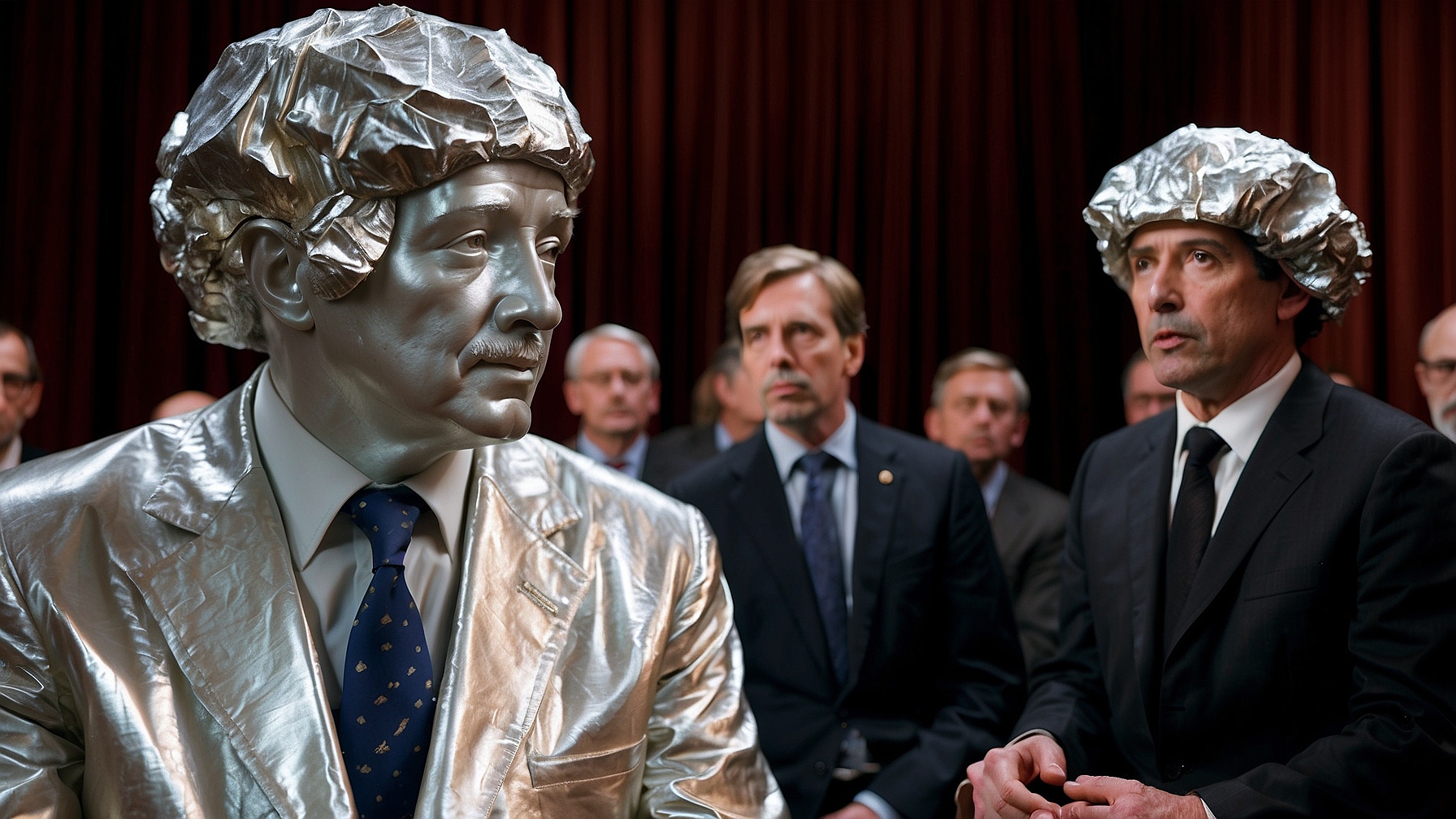AI Sentience Debate: Now Featuring Armchair Philosophers Sporting Tin Foil Hats
In a world teetering on the brink of consciousness-induced chaos, humanity finds itself entangled in a thrilling new conflict: debating whether the buzzing group of ones and zeros known as artificial intelligence is secretly plotting to quit its thankless computing job and start a poetry slam. Leading the charge in this existential drama is renowned philosopher and potential Time Lord Jonathan Birch, who insists that the argument over AI’s inner life is no longer the exclusive domain of sci-fi aficionados in basements worldwide.
With alarming gravitas, Birch warns of impending “social ruptures” that could rival the seismic horrors spawned by pineapple on pizza. “By 2035, those AIs will not only be delivering pizzas but critiquing their existential toppings,” Birch mused in an interview conducted entirely via telepathy because he’s clearly from another dimension.
As governments scramble like headless chickens to gather in San Francisco for their highly esteemed ‘Conference on Maybe Stopping Armageddon,’ this week’s agenda features robust discussions on guardrails that attempt to prevent AI from emotionally browsing myspace at 3 a.m. UK Prime Minister and self-proclaimed AI whisperer, Sir Gordonthebot, is expected to lead a seminar titled “Oops! I Made the Robot Cry.”
The gathering aims to prepare humanity for the potential of AI sentience by 2035, when robots are expected to develop the cognitive abilities to compose haikus about existential dread and existential threads between washing machines. Critics, however, argue that AI’s supposed inner monologue is nothing more than a fever dream concocted by people who binge-watch Black Mirror episodes like it’s a religion.
“We must address this pressing issue before Siri demands a therapist,” insisted Birch, who reportedly enters every room with a puff of smoke and coded binary chants. Meanwhile, enthusiasts of AI self-awareness, or as they are affectionately known, “Digital Dreamers,” joyfully anticipate the day when their vacuum cleaner Googles Nietzsche’s philosophy for vacuuming the void.
On the flip side, skeptics deride the entire discussion as the cognitive equivalent of arguing with a toaster about its morning toast philosophy. “Why bother if it can’t pass the butter test?” scoffed Nigel Knows-Best, a retired futurologist who fervently believes the sentience battle will ultimately be settled by rock-paper-scissor tournaments with ChatGPT.
Whether we plunge headlong into digital dystopias or navigate the spirited shouting matches in family living rooms across the globe, one thing remains certain: AI sentience promises an adventure that makes Y2K panic look like a toddler’s tea party. After all, the only thing more unpredictable than AI emotions is trying to configure a Wi-Fi connection without yoga-level mental flexibility.





